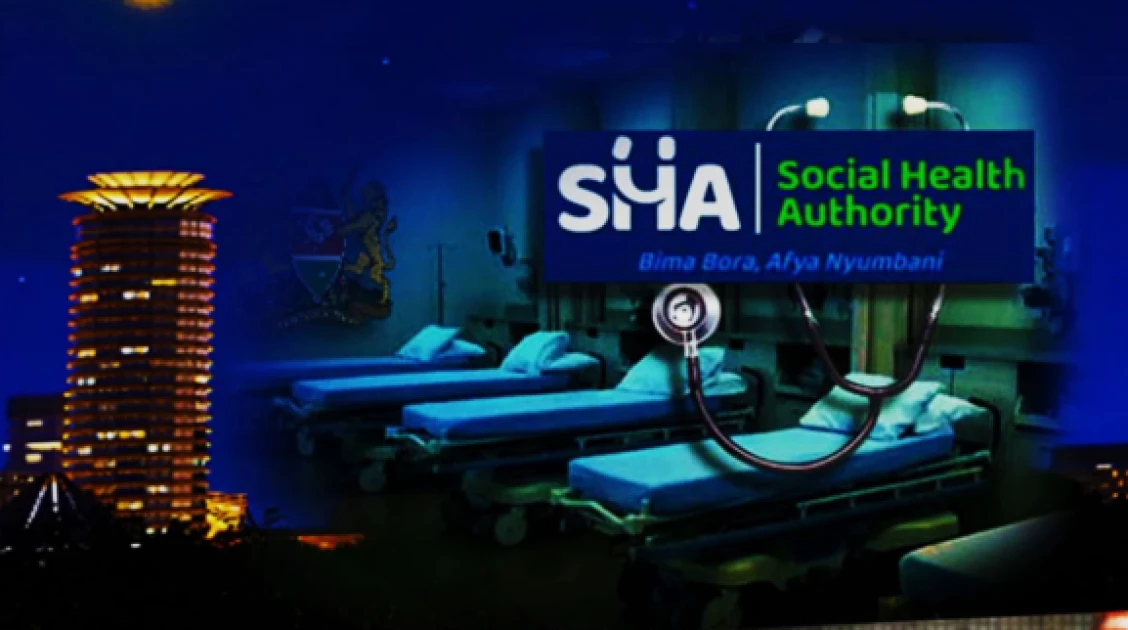RUPHA Issues New Guidelines for Teachers as Private Hospitals Suspend SHA Services.
Starting Monday, February 24, 2025, teachers seeking treatment at private hospitals under the Social Health Authority (SHA) will be denied services unless it is an emergency.
Private hospitals have introduced new guidelines to help patients navigate the impending suspension of Social Health Authority (SHA) services, set to take effect on Monday.
According to the association, the government has accumulated a debt of 30 billion Kenya Shillings, mainly from the now-defunct National Hospital Insurance Fund (NHIF).
Of this, 22 billion Shillings is owed to private hospitals, while 6.9 billion Shillings remains in unaudited claims. The association is advocating for a structured repayment plan, suggesting that settlements should occur monthly and not extend beyond a three-month period.
Speaking at a press conference on Sunday, Rural and Urban Private Hospitals Association (RUPHA) Chairperson Brian Lishenga assured that some patients would not be affected by the suspension.
He clarified that SHA services would continue for those who had already been admitted before the February 24 cutoff date.
Lishenga confirmed that emergency services at private institutions would remain unaffected. He stated that patients admitted before the suspension date would continue receiving treatment, emphasizing that private hospitals should not discharge or turn away patients who were admitted before January 24.
Additionally, Lishenga instructed private hospitals to guide patients seeking SHA services after February 24 with courtesy and respect. He advised healthcare institutions to explain the temporary nature of the situation to affected patients with dignity.
Missing Financial Records
Lishenga stated that individual hospitals have been asked to confirm the amounts owed to them by the government. However, there are concerns about records predating October 2024, as NHIF systems were deactivated.
Many hospitals no longer have access to their old claims, leaving uncertainty about whether these records have been archived securely or altered.
Amid concerns about a potential healthcare crisis following the suspension, Lishenga outlined alternative options for patients seeking medical care.
He stated that private hospitals would still treat individuals who had private medical insurance or were willing to pay for services out-of-pocket.
In cases where neither option was feasible, hospitals would provide referrals to other institutions to ensure continued care.
The suspension of SHA services will affect approximately 650 private hospitals across the country, including 65 in Nairobi, 103 in Mombasa, and 36 in Kisumu.
Public service workers, such as teachers and police officers, will be among those impacted. However, private hospitals will still be required to provide emergency services to stabilize patients, as dictated by professional and ethical standards.
Once stabilized, patients using SHA or MKL medical coverage will be referred to hospitals of their choice.
Available Patient Options
Patients already undergoing treatment under SHA before the February 24 deadline will continue to receive care under the same arrangement.
However, from Monday onward, new admissions must be covered by alternative private insurance or cash payments. The available options for patients will include:
- Paying for treatment out-of-pocket if financially able.
- Being referred to another hospital that still accepts SHA or MKL coverage.
- Utilizing alternative private insurance if available.
The Rural and Urban Private Hospitals Association has reiterated that the government has yet to initiate dialogue on this issue. Representatives of the association have emphasized their willingness to negotiate and find a resolution.
Lishenga further criticized the government’s strategy of using Kenyans’ SHA contributions to address financial deficits, arguing that a supplementary budget was the appropriate solution.
He shared insights from discussions with government insiders, revealing that the president had reportedly stated that funds were unavailable.
SHA authorities, he noted, had repeatedly been informed there was no money, leading them to rely on a surge in SHA registrations to resolve NHIF deficits, which ultimately did not materialize as expected.
Despite the ongoing financial standoff, RUPHA emphasized its willingness to engage in discussions with the government. The association remains open to negotiations to resolve the issue and restore SHA services in private hospitals.
RUPHA Issues New Guidelines for Teachers as Private Hospitals Suspend SHA Services.
Follow Teachers Updates on Facebook, LinkedIn, X (Twitter), WhatsApp, Telegram, and Instagram. Get in touch with our editors at hello@teachersupdates.news.


Discussion about this post